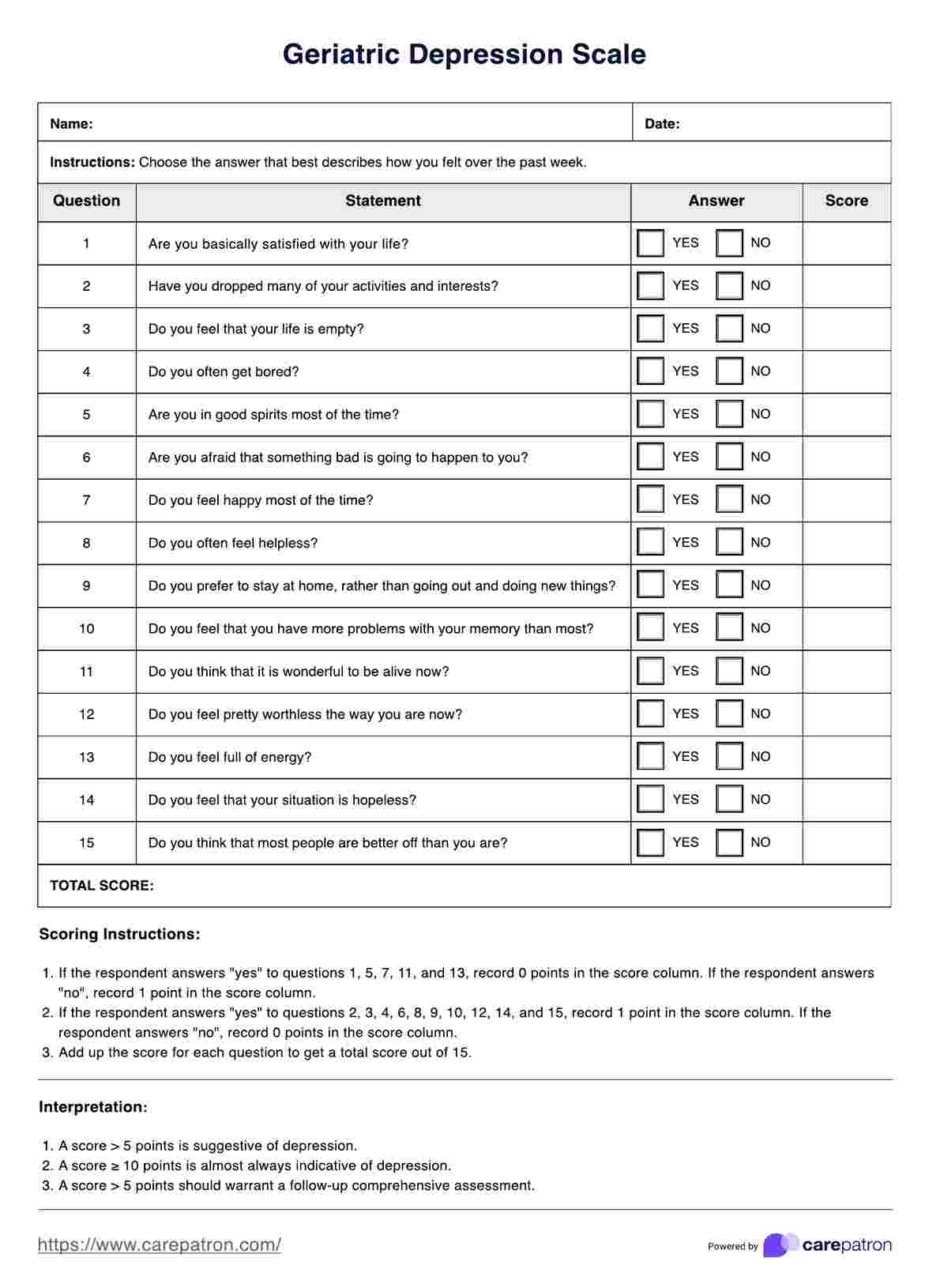The reason why this scale will help you answer certain questions is that you can use their Yes or No answers for specific questions on the questionnaire to help frame your sessions with the geriatric patient. You can have them elaborate on their Yes or No answers.

Geriatric Depression Scale (Long Form)
Are you dealing with a depressed geriatric patient? Assess the severity of their depression using this Geriatric Depression Scale (Long Form) and determine what you can do to help them work through it!
Geriatric Depression Scale (Long Form) Template
Commonly asked questions
Yes. The Geriatric Depression Scale, whether you are using the short-form or long-form versions, is reliable. It is widely used and has gone through numerous validation tests to the point that it has become a trusted tool for psychologists and adjacent practitioners to help screen depression in geriatric patients.
Technically, no because how do you even truly come up with a qualitative score for depression? But what the scale does is give healthcare practitioners a semblance of objectivity. By assigning score ranges and specific designations for each range, the scale gives practitioners something to work with when dealing with their geriatric patients. The numbers help dictate the course of action.
EHR and practice management software
Get started for free
*No credit card required
Free
$0/usd
Unlimited clients
Telehealth
1GB of storage
Client portal text
Automated billing and online payments











